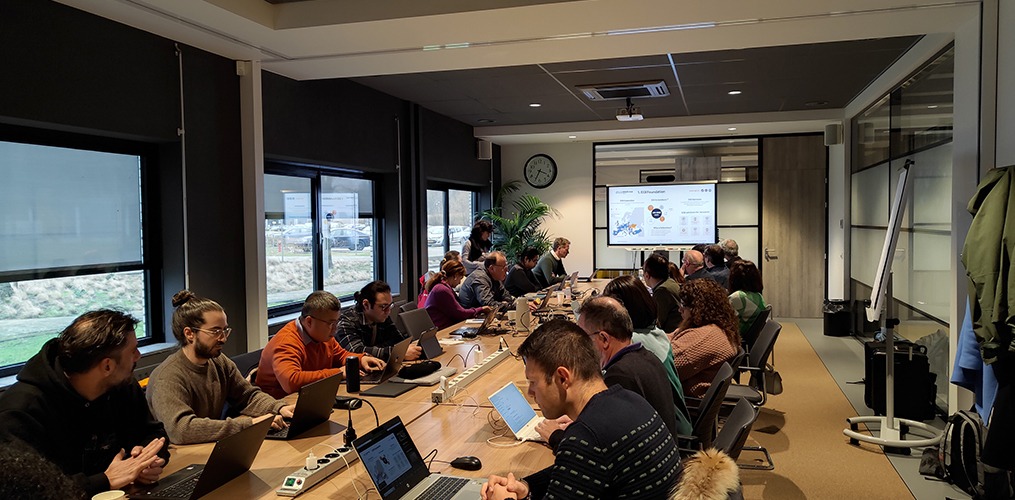
The ENVRI-Hub NEXT project, of which LifeWatch ERIC is a consortium member, kicked off on February 1. The project builds upon the solid conceptual and technical foundation established by the ENVRI-Hub. The consortium comprises 21 partners and is attending a face-to-face meeting at the EGI Foundation in Amsterdam Science Park from February 6 to 8.
ENVRI-Hub NEXT aims to expand multidisciplinary environmental sciences by fostering operational synergies between environmental research infrastructures. The project leverages complementarities in data and service provision, enhancing the integration of cutting-edge information technology. It contributes to a more integrated, productive, and globally competitive ENVRI Science Cluster. The project is set to run until January 2027, contributing to the European Open Science Cloud. ENVRI-Hub NEXT also promotes collaboration across environmental research infrastructures.
LifeWatch ERIC is actively contributing to addressing the growing demand for environmental scientific knowledge. Our involvement aligns with the project’s goal of further integrating ENVRIs across subdomains (Atmosphere, Marine, Solid Earth, and Biodiversity/Ecosystems) and horizontally, with the e-infrastructures to leverage the full potential of the ENVRI cluster for integrated environmental research.
ENVRI-Hub NEXT aligns with the World Meteorological Organisation’s set of Essential Climate Variables (ECV) and global climate indicators to transform integrated Earth observation into a concept for a global climate observation system. These variables provide empirical evidence crucial for understanding and predicting climate evolution, guiding mitigation and adaptation.
Stay tuned for the launch of the ENVRI-Hub NEXT website.